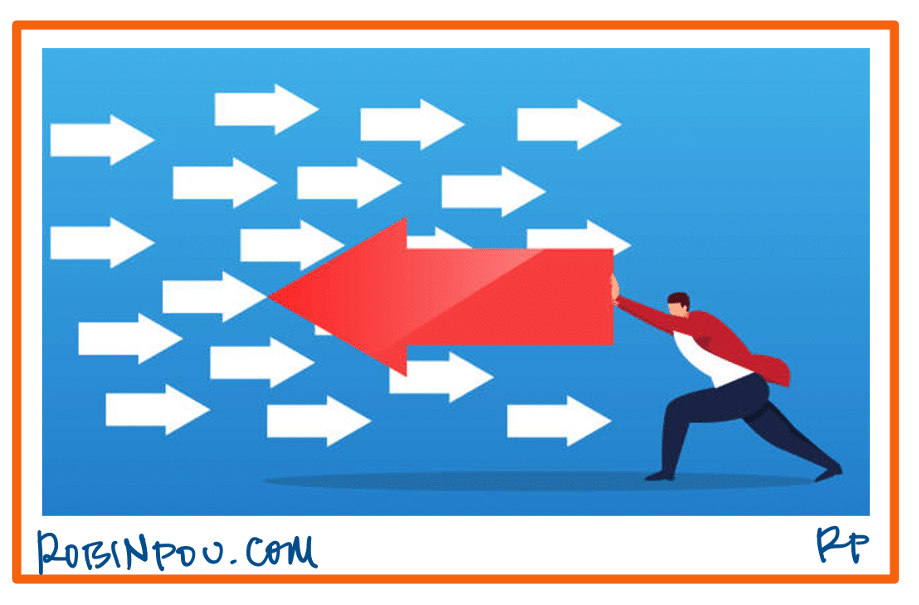Skills to Manage Change in Dynamic Environments (#139)

Last week we conducted an experiment. Could Artificial Intelligence (AI) write a better newsletter than me, a mere mortal? Find out what we learned that was both alarming and affirming.
>
““In times of change, learners inherit the earth, while the learned find themselves beautifully equipped to deal with a world that no longer exists.””
This Week’s Edition
As leaders, the only thing constant is change. When disruption ensues, which leaders will doubt their leadership and which will excel?
Clarify Your Thinking
Our AI experiment tested the power of artificial intelligence in the area of writing a leadership newsletter. More importantly, it had us exploring how well leaders are adapting to change.
Last week, I asked ChatGPT to write a newsletter about the difference between management and leadership. Within seconds, I got a 500 word essay that blew me away. Check it out here. It’s factual accuracy was shocking. I would give it a letter grade of B. Ironically, ChatGPT gave itself an A. Go figure.
Then, I asked you to evaluate the machine’s work (given the quality of the previous 135 newsletters I have written). Your comments were affirming:
-
“I liked the content above, but it seemed a little repetitious. It was missing the warmth.”
-
“[I]t was dry and boring. People need people and authentic stories to receive inspiration, not AI. Boring!!”
-
“While it was informative, it was somewhat dry and lacking personality. It was factual but seemed pretty generic.”
-
“I actually thought — blah blah blah while reading. It was surprising because typically I’m inspired by the newsletters & have “ah ha” moments as well. [T]here was definitely a difference in my overall engagement & feeling I got (or didn’t get) reading this one.”
Thank you for taking the time to comment. I’ll assume job security until the next version upgrade of ChatGPT.
A leader who is afraid of change, like the impact of a powerful technology tool like AI, might rest their case at this point by declaring – human wins, machine loses.
Unfortunately, that determination is naïve at best and exposes a weakness (or fear) in the leader’s thinking.
Thoughts Lead to Actions
Whether you are interested in AI, technology is bringing change. It is upon us. So, which skills do leaders need to be successful alongside the rapid pace of change?
Focus on these three (of fifteen) emotional intelligence skills to bolster your ability to manage change:
-
Reality Testing: the capacity to remain objective by seeing things as they really are. Recognizing when emotions or personal bias can cause one to be less objective.
-
Flexibilty: adapting one’s thoughts, feelings and behaviors to unfamiliar, unpredictable and dynamic circumstances or ideas.
-
Optimism: an indicator of one’s positive attitude and outlook on life. Remaining hopeful and resilient despite occasional setbacks.
It may be some time before machines are able to be emotionally intelligent. We’ve got a head start. Let’s use that as our competitive advantage.
Boost Your Performance
The emotionally intelligent leader is a cornerstone of our Leadership Cohorts. We didn’t design it that way with AI in mind, but it sure makes us look smart now. Leaders who’ve honed the “soft skills” generate a greater return on their hard skills. Find out more in this week’s video.
What’s Your Opinion?
What is your leadership hack for managing change? Share it with me at robin.pou@robinpou.com.
If you are going to be a leader, you might as well be a good one. Don’t let doubt count you out. Have a confident week!
Robin Pou, Chief Advisor and Strategist
We live to make bad leadership extinct so forward this newsletter to others who strive to be confident leaders.
Let’s Connect
Follow me on Linkedin, Facebook and Twitter.
What is “The Confident Leader”?
During the Covid-19 Pandemic, I began a video series called “Panic or Plan?” It was designed to equip leaders to navigate the doubt they experienced and to rise in the confidence they needed to lead during turbulent times. It took off. I then started this newsletter to equip leaders in the same fashion each week for the doubt that crashes across the bow of their leaderSHIP.
welcome to the club! I see you.
- Step out of Doubt
- Complete your Confidence
- Tackle any leadership challenge



